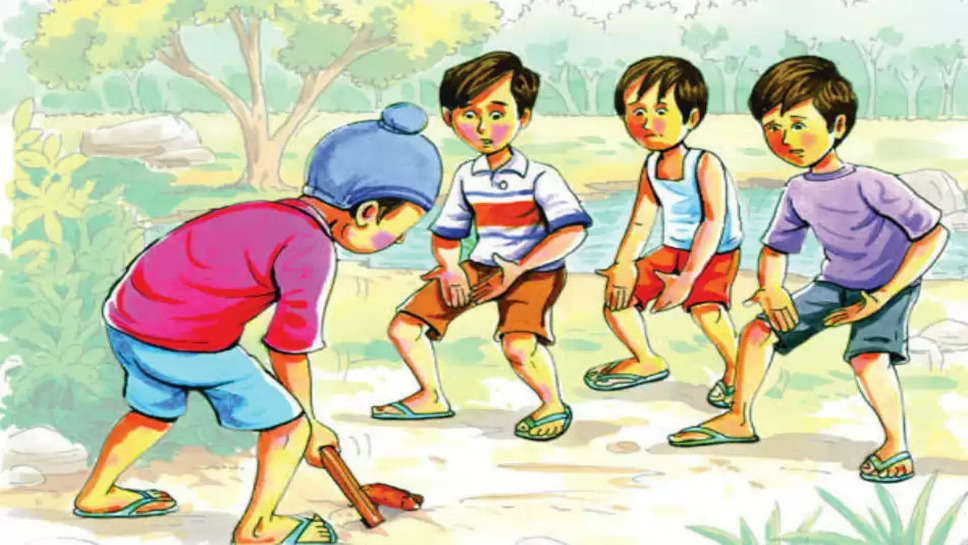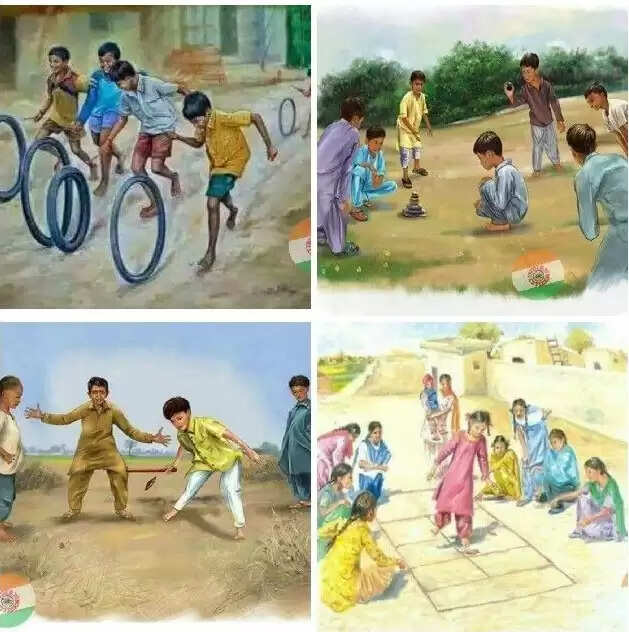Top 10 Traditional Games Of India That Will Remind You Of Your Childhood

Childhood memories are often filled with laughter, fun, and games. In India, traditional games have played a significant role in shaping the childhoods of generations. These games not only provided entertainment but also imparted valuable life lessons. Today, in the age of digital entertainment, it's essential to revisit these cherished pastimes. In this article, we will take a nostalgic journey through the top 10 traditional games of India that will remind you of your childhood.

- Gilli Danda
Gilli Danda is a game that requires precision and skill. It involves hitting a small wooden gilli (a cylindrical piece of wood) with a danda (a larger stick). The objective is to hit the gilli as far as possible and then score points based on how far it lands. This game not only promotes physical activity but also encourages focus and concentration.
- Kho-Kho
Kho-Kho is a team-based tag game that requires agility and teamwork. Players chase and tag the members of the opposing team while avoiding being tagged themselves. The game teaches teamwork, communication, and the importance of strategy in achieving a common goal.
- Lagori (Seven Stones)
Lagori, also known as Satoliya or Pittu, is a game involving a ball and a pile of seven flat stones. The objective is to hit the pile with the ball and then try to rebuild it while the opposing team tries to prevent you from doing so. Lagori enhances hand-eye coordination, physical fitness, and problem-solving skills.
- Pittu
Pittu is a simple yet engaging game that involves throwing a ball at a small target to knock it down. Players take turns throwing the ball while the opposing team tries to catch it or prevent it from hitting the target. This game enhances hand-eye coordination and focus.
- Kabaddi
Kabaddi is a highly competitive and physically demanding sport. It involves two teams taking turns sending a "raider" into the opponent's territory to tag as many defenders as possible while chanting "kabaddi, kabaddi." The raider must return to their side before taking a breath. Kabaddi promotes physical fitness, agility, and teamwork.
- Pithoo (Seven Stones)
Pithoo, also known as Satoliya or Lingorcha, involves stacking seven flat stones and trying to knock them down with a ball. The opposing team tries to restore the pile while the other team attempts to prevent it. Pithoo improves aim, concentration, and teamwork.
- Chhupan Chhupai (Hide and Seek)
Chhupan Chhupai, the Indian version of Hide and Seek, is a beloved childhood game. One player closes their eyes and counts while the others hide. The objective is to find and tag the hidden players. This game teaches patience, observation, and the thrill of discovery.
- Pallanguzhi
Pallanguzhi is a traditional South Indian board game played with a wooden board and cowrie shells or seeds as game pieces. Players strategically move the seeds across the board, aiming to capture their opponent's seeds. Pallanguzhi enhances cognitive skills, strategic thinking, and patience.
- Marbles (Kancha)
Marbles, known as Kancha in India, is a game where players take turns trying to knock marbles out of a circle using a larger marble as a shooter. The player who collects the most marbles wins. Kancha fosters precision, concentration, and friendly competition.
- Chor-Police (Thief and Police)
Chor-Police is an imaginative game where children role-play as thieves and police officers. The "thieves" hide, while the "police" try to find and tag them. This game encourages creativity, teamwork, and storytelling.
Conclusion
These traditional games of India are not just nostalgic reminders of our childhood but also valuable learning experiences. They teach essential life skills like teamwork, strategy, patience, and physical fitness. In a world dominated by screens and technology, introducing these games to the younger generation can help preserve our cultural heritage and promote active and social play. So, gather your friends and family, relive your childhood memories, and rediscover the joy of these timeless Indian games.

